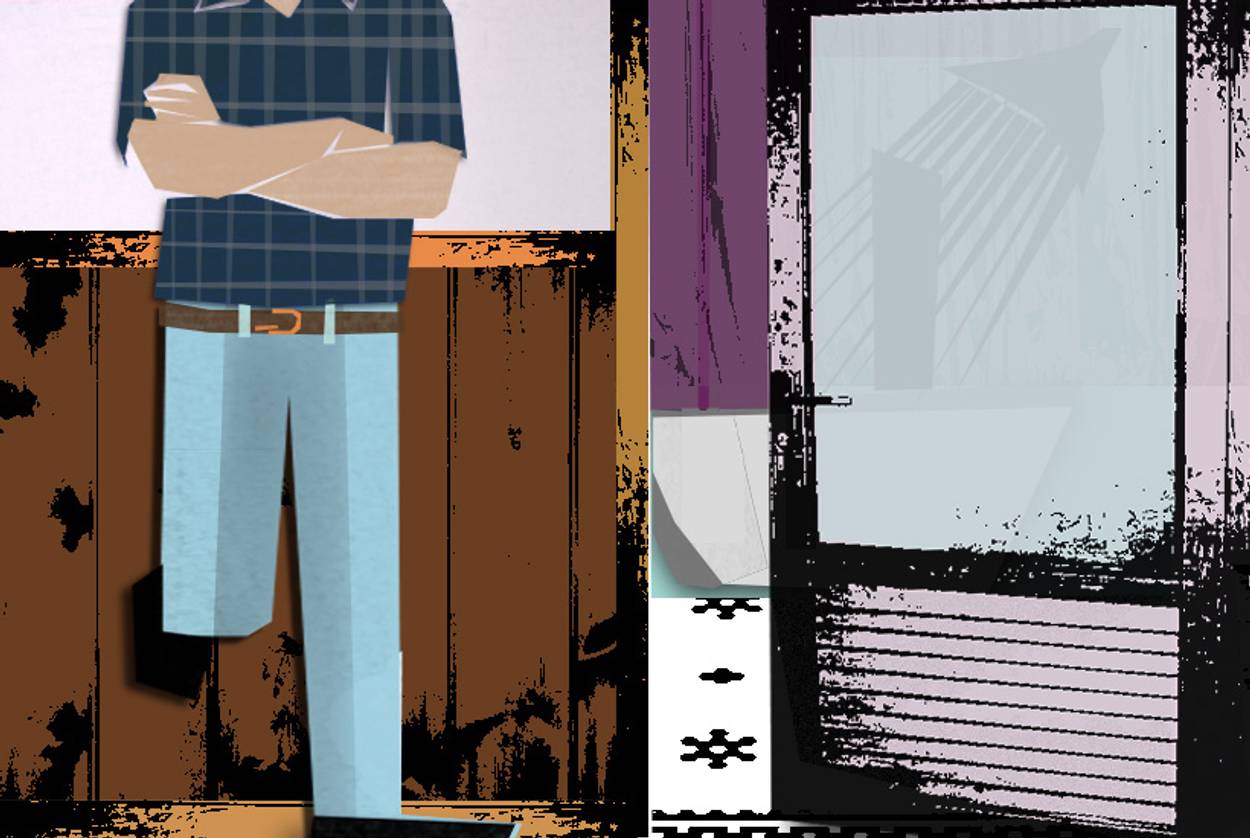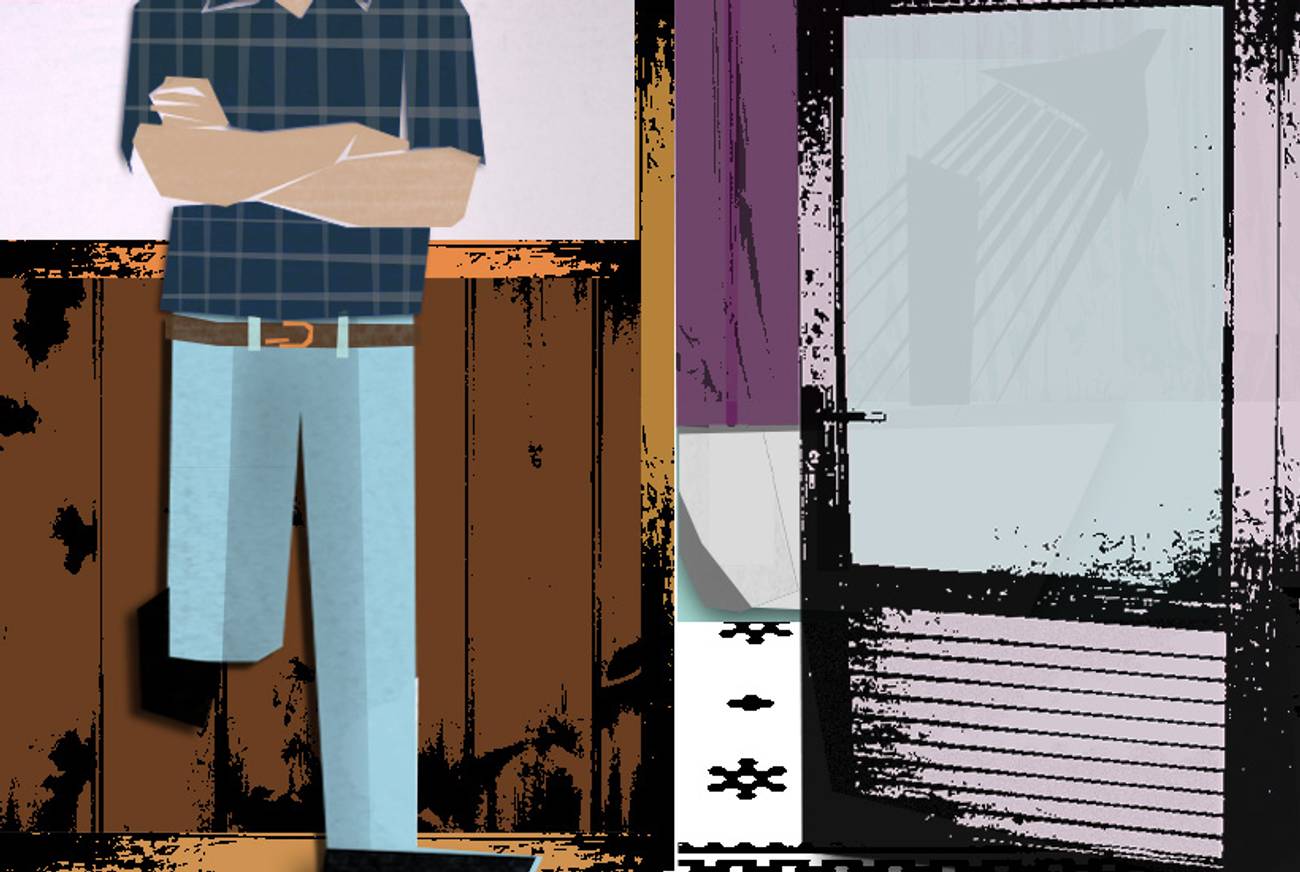Facing the Naked Truth About My Father’s Declining Health, and What It Means for Me
When I was young, my father cared for me. Now he’s old and needs my help, but can I really provide it?




It starts as just another Sunday visit with Dad. He has been having some trouble breathing, and he is shaky on his feet. When it’s time for me to leave, he asks me to stay a little longer. “I need to take a shower,” he says with apology. “I am afraid to do it alone.” I nod. He needs me there to spot him, to make sure he doesn’t slip. He is suffering from a blockage in his lung, and his doctor has advised him not to bathe alone.
Everything is in order. My father, a military man and quintessential planner, has strategically placed towels here, clean clothes there, chairs where he can rest between his bed and the shower. But still, as he limps across the room, stopping every few steps to catch his breath, he says: “Don’t leave. I need you.”
I am angry. I don’t want to be doing this. But my mind wrestles with itself: This is the man who formed me, diapered me, rocked me in the cradle. He taught me how to tie my shoes, zip up my coat, balance a checkbook, study a page of Talmud.
Of course I stay—my father needs me. But that does not stop irrational thoughts from erupting inside, as though I’m still 15 years old and he is 45: Since when am I supposed to take care of him? Why doesn’t he just take care of himself? He’s the father, for God’s sake. But for some of us, as adults we must now return the lifetime of care to our parents, even if inside we never feel grown up enough to take care of anyone. As Father’s Day reminds us—not that we needed the reminder—a father is a father is a father. He cared for you; now you care for him.
***
As a child, I was by his side, marching in lockstep as he went to shul to do his rabbinical duties. I went with him when he officiated at funerals and unveilings. He would offer a few words and the mourners would burst into tears just like that; it was a kind of dark magic, to make people cry—little did I know then, it was a kindness. I loved learning about all his experiences, like when he was chaplain at the Atlanta Federal Penitentiary and ministered to the famous gangster Mickey Cohen, but it was a little overwhelming, too. At every step, he shared with me his thoughts, even if I might have been too young to grasp it all. I remember when I was 6 years old in 1970, he gave me his opinions on the war in Vietnam, the counterculture, the generation gap. I stood there stalwart, part loving shadow, part valet, part footman in training, taking it all in.
I knew his enemies, too. When I was 12, he engaged in a fight for his professional life. Some members of a local yeshiva where he had been principal had conspired to throw him out. War was declared, pitting parents and board members against each other. Parts of the neighborhood chose sides, and some of our family’s friends became personae non grata. The fight was only resolved when my father got into his gold Chevrolet Biscayne (with air-conditioning and power-steering!) and drove to the Lower East Side to see the sage of the day, Rabbi Moshe Feinstein, at Mesivta Tifereth Jerusalem. My father told him his woes, and the sage took out a piece of his letterhead and wrote simply in the holy tongue in his own pen: “It is forbidden to remove this man from his position.” My father returned from this trip holding this piece of paper and crying as I had never before or since seen him cry. At the time, I didn’t understand why he was crying, although I think I understand now: He was being bullied in the playground, and the diminutive sage from the Lower East Side, the giant of our generation, had stood up for him and told those bullies to scat.
Not all of his battles were emotional. His body still bears the physical scars of a terrible accident 33 years ago. He was run over by a drunk driver while putting etrogim into the trunk of his car. It put him in the hospital for seven months; he had 19 operations and spent three years in a wheelchair. He was, for quite a while, an invalid, and we all took care of him. We brought him his food, his clothes. We drove him everywhere. He rewarded us by recovering vigorously with almost superhuman determination.
My father’s battles were mine, his views and his versions of events were all mine, and they embedded themselves deeply into my blood. What was the price of carrying my father’s thoughts? Our relationship was both a link and a barrier to the world, a protective and exclusive bromance. Play ball? Take a run? Date a girl? Wear a loud shirt? I did all these things, of course, but I had a second layer of skin to consider, another set of opinions to keep in mind.
And now, after all those years, with all that history hanging over us, I had to watch my father bare himself to me—literally—because the contract between us had turned decisively. In the end, he needed me.
***
I gather his clothes, his bottle of water, a washcloth. I put his worn clothes in the hamper, get clean socks and a pair of freshly pressed pajamas from the drawer. Finally, with me shadowing him, he made it to the bathroom and turned on the water.
“Are you all right?” I called into the bathroom.
“Come to the door, listen,” he tells me. “I have something to tell you.”
I come to the doorway. I can feel the spirit of Mother, dead since last year, hovering over the bathroom. We both feel her.
“You know, what kept me and Ma together all those years?” he asks. “It was her beauty. It was physical. Physical, I tell you. … She was an absolutely astoundingly beautiful woman, and her physicality imprinted itself on me from the moment I met her.”
I nod my head. The carnal candor is bracing, even refreshing, and yet not entirely unexpected. After all, the bath setting is famous for a kind of frank, male banter. But hearing this is also if not exactly a burden, then certainly a perverse privilege. Our bonds have been formed so tightly that at times there seems scarcely any space between us, as though we are brothers peering out of the foxhole of life: He sleeps and I stand guard, I sleep and he stands guard. We can rely on each other—perhaps too well and too much.
“How are your finances?” he shouts from the shower.
“They’re fine,” I tell him.
“I hate to see you still carrying all that debt.”
“I have paid much of it down,” I tell him.
“I want to give you some money,” he says. “Why suffer? Why not have?”
I am already 50, but he wants to be the father to me, still. It makes me queasy. I don’t want his money, but am I doing him a favor by taking it? The giving and taking between us has always been blurred in unending thick fog.
“I know you need it,” he says. “You need something. Take it. You can always use.”
“Do you really want to give it to me?” I straighten the room for him.
“If it is useful to you, I want you to have it.”
“But do you want to give it to me?”
“I am happy for you to have it.”
This is when the conversation between intimates reaches irrational levels, looping around like an endless newsreel with no “off” switch. We see each other, and yet we don’t see each other at all.
I play the solemn bath attendant. I am quiet, waiting, sympathetic. It is no wonder that I developed a career as a psychoanalyst, to accept the confidences of men and women, to cultivate the crops of a temporarily barren mind with both words and silence. Some men don’t want to be cured of their madness. They wear it like a snug-fitting shoe.
The water in the bath drains. Like the good sons of Noah I hold out the towel for him from behind without looking.
I help him get his freshly showered, lotioned body into his pajamas.
“Will you take the money?” he asks again.
“Not now,” I tell him. “Get better first. Then we’ll talk about it.” Despite his breathing, I am confident he will get better.
I help him into bed. He rests easy now, ready for sleep. I feel pride in a good job: I helped him. Just before I leave, he tells me, “You know? The problem with my lungs? It could be Ma. I haven’t shed enough tears over her, and the water is going into my lungs.”
This is a startling and touching revelation. It has the ring of truth. The grief over the woman is lodged between us. “I think so much of my need for you and your brother is a way of avoiding those tears,” he says. Once again, I am the link and the barrier.
I hug him goodnight and leave the house. The next morning we talk on the phone. “I feel better,” he says. Slowly, over the ensuing weeks, he starts to recover.
Perhaps I have given him something he needs. Once I stop resisting taking care of him and actually apply myself heart and soul to the task at hand—not just then, but in the ensuing weeks and months, together with my siblings—I find I am no longer angry at all. I became young again in a different way: I have the energy of life and take a young man’s simple pleasure in doing the right thing. I don’t need anyone to tell me what is right. I have become a father to myself and healed my old man.
***
Like this article? Sign up for our Daily Digest to get Tablet Magazine’s new content in your inbox each morning.
Alter Yisrael Shimon Feuerman, a psychotherapist in New Jersey, is director of The New Center for Advanced Psychotherapy Studies. He is also author of the Yiddish novelYankel and Leah.
Alter Yisrael Shimon Feuerman, a psychotherapist in New Jersey, is director of The New Center for Advanced Psychotherapy Studies. He is also author of the Yiddish novel Yankel and Leah.